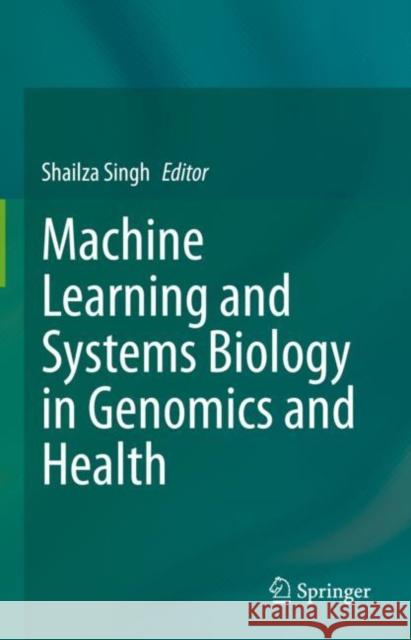Machine Learning and Systems Biology in Genomics and Health » książka
topmenu
Machine Learning and Systems Biology in Genomics and Health
ISBN-13: 9789811659928 / Angielski / Twarda / 2022
Machine Learning and Systems Biology in Genomics and Health
ISBN-13: 9789811659928 / Angielski / Twarda / 2022
cena 928,04
(netto: 883,85 VAT: 5%)
Najniższa cena z 30 dni: 886,75
(netto: 883,85 VAT: 5%)
Najniższa cena z 30 dni: 886,75
Termin realizacji zamówienia:
ok. 22 dni roboczych
Dostawa w 2026 r.
ok. 22 dni roboczych
Dostawa w 2026 r.
Darmowa dostawa!
This book discusses the application of machine learning in genomics. Machine Learning offers ample opportunities for Big Data to be assimilated and comprehended effectively using different frameworks. Stratification, diagnosis, classification and survival predictions encompass the different health care regimes representing unique challenges for data pre-processing, model training, refinement of the systems with clinical implications. The book discusses different models for in-depth analysis of different conditions. Machine Learning techniques have revolutionized genomic analysis. Different chapters of the book describe the role of Artificial Intelligence in clinical and genomic diagnostics. It discusses how systems biology is exploited in identifying the genetic markers for drug discovery and disease identification. Myriad number of diseases whether be infectious, metabolic, cancer can be dealt in effectively which combines the different omics data for precision medicine. Major breakthroughs in the field would help reflect more new innovations which are at their pinnacle stage.
This book is useful for researchers in the fields of genomics, genetics, computational biology and bioinformatics.











